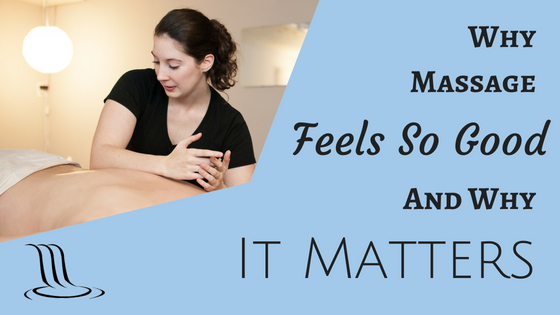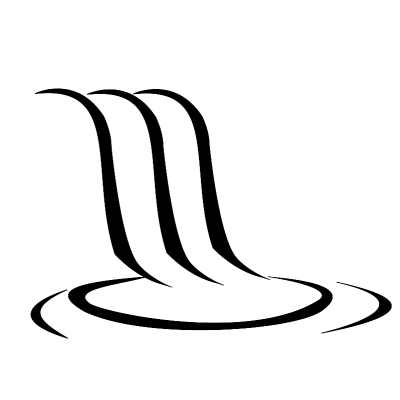
Why does massage feel so good? Most of the time we try to defend massage on a medical basis. But what about the fact that it just feels good?
Massage has a number of well-documented medical benefits. Massage has been shown to:
- improve sleep
- decrease depression
- help with headaches
- treat soft-tissue strains and injuries
- ease joint pain
- mitigate digestive disorders
And many more! But one benefit of massage that often gets forgotten in the race to demonstrate its value is that it just feels so good.
Why do we distrust that something that feels good can also be good for us? The puritanical roots of American culture run deep, warning us that anything that feels good, especially when done unclothed. Out distrust of human touch makes no sense.
Therapeutic massage can enable you to live your best life, not just because of what it can do, but because of how it feels. Yes, massage does a lot of good, but why are those benefits somehow less valid than the fact that it feels good?
Focusing for the moment on the fact that massage feels so good, let’s examine for a moment why it feels so good, and why it matters.
Primal touch
From the moment we’re born, we depend on human contact. We depend on this less as we grow, but social contact and physical affection remain as necessities for human health, survival, and sanity. This has been well established by numerous studies, unfortunately often when the subjects have been deprived of human contact and touch through some terrible circumstance.
Children from over-crowded orphanages around the world don’t get the touch they need from a parent or the over-taxed staff at these facilities, and often develop severe emotional disorders as they grow, if they even survive infancy. Prisoners subjected to solitary confinement for large stretches of time come out a shadow of their former selves, manifesting debilitating mental disorders. All this for lack of simple human touch.
Touch is powerful. We’re primarily social creatures, which means as a species we depend on each other to survive. This runs deep and goes back tens of thousands, perhaps millions of years. When you receive touch from another human being, something interesting happens. The part of your brain that activates the fight-or-flight response to stress is shut down. Touch activates the Parasympathetic Nervous system, which essentially tells every cell in your body that you’re safe, and that you’re going to survive. This is true relaxation. This is true freedom from stress.
Lifetime benefits
And the effect of touch isn’t just short term. Demographic studies show that people who live in families and communities live longer, healthier, happier lives. If that’s not what our focus on wellness and health is all about, then what is it about? Touch means everything, for your whole life.
The value of touch therapy
A licensed massage therapist has the skill and sensitivity to respond to what your body needs most. If the LMT is doing their job, you’ll feel great no matter what your unique needs and conditions happen to be.
At The Good Life Massage, we strive to foster an environment where therapists can focus on the needs of the client. Most massage chains try to “pack-em-in”, leaving little-to-no transition time between clients. This makes it difficult to do detailed consults with clients about pain they’re feeling or health goals they’re working on.
At The Good Life Massage, we give our therapists between 15 and 30 minutes between sessions, which usually allows for ample time to consult with clients before and after. Nobody feels rushed out the door, and therapists can take the time to listen to their clients and offer expert advice to decrease pain and improve health over all.
Book your next massage today.
Choose the good life.
Tom Gunn is the blog editor and marketing director for The Good Life Massage. You can contact him for a consultation on how content marketing can work to build your presence online and drive your business by emailing him at tomgunn@gmail.com

